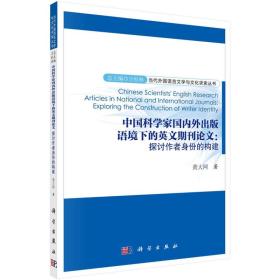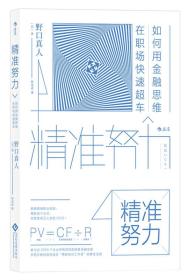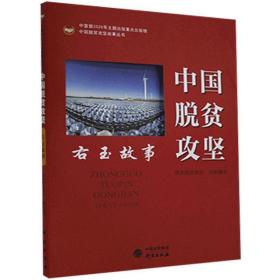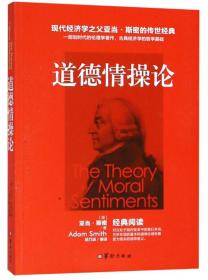
中国科学家国内外出版语境下的英文期刊论文:探讨作者身份的构建
¥ 47.88 6.3折 ¥ 76 全新
仅1件
山东泰安
认证卖家担保交易快速发货售后保障
作者黄大网 著
出版社科学出版社
出版时间2015-06
版次1
装帧平装
货号607 11-6
上书时间2024-11-06
- 在售商品 暂无
- 平均发货时间 24小时
- 好评率 暂无
- 最新上架
商品详情
- 品相描述:全新
图书标准信息
- 作者 黄大网 著
- 出版社 科学出版社
- 出版时间 2015-06
- 版次 1
- ISBN 9787030448255
- 定价 76.00元
- 装帧 平装
- 开本 16开
- 纸张 胶版纸
- 页数 244页
- 字数 300千字
- 正文语种 简体中文,英语
- 丛书 当代外国语言文学与文化求索丛书/王松林
- 【内容简介】
- 本研究依托Bhatia(2004)多维度/多视角的体裁分析理论,整合Ivanic(1998,2005)的作者身份模型及Wenger(1998)的身份建构理论,通过语料库对比体裁分析和多重民族志学个案相结合,深度考察中国本土材料科学工作者跨越国内外学科社群边界进程中学术(英语)写作文本的再语境化或话语转换,力图挖掘亲历式自我、话语自我、作者自我、社会认同的自我可能性等作者身份不同维度上的话语建构。
- 【目录】
-
TABLE OF CONTENTS丛书序iAcknowledgementsvAbstractvii摘要ixChapter One Introduction11.1 Background to the Research Problem11.2 Chinese Materials Scientists as Research Subject21.3 Research Questions61.4 Structure of This Book8Chapter Two Academic Writing for Multilingual Scholars92.1 Scientific Writing as Scholarly Literacy92.1.1 In the eyes of sociologists of scientific knowledge92.1.2 In the eyes of applied discourse analysts112.2 Multilingual Writers in the Postmodern Science272.2.1 Contrastive (genre) analysis of textual features282.2.2 Disciplinary socialization of multilingual scientist writers332.3 Disciplinary Community of MS in China382.3.1 Traditional culture and emergence of the community392.3.2 Community size, composition and publications of the CMSs402.3.3 Outflow of SCI papers and resulting problems422.3.4 Enriched materiality, information gap, and modern technology432.3.5 Locally-educated in-service staff as a more specific group442.4 An Interim Summary45Chapter Three Writer Identity463.1 Writer Identity: Rationale, Etymology and Conceptualization463.2 Existing Studies on Writer Identity493.2.1 NES and ESL student writers in Anglo-American schools503.2.2 EFL/EAL writers in Anglo-American and non-Western universities553.3 Relevant Terms of Writer Identity: Contexts and Research Foci613.3.1 Different ways of talking about “identity” in composition research613.3.2 Relationship of various identities to writer identity673.4 An Interim Summary71Chapter Four Research Methodology734.1 Research Design734.2 An Integrative Model of Writer Identity754.3 Data Collection794.3.1 Corpus compilation794.3.2 Selection of focus subjects in the study814.3.3 Literacy and discourse-based interviews844.3.4 Microhistory of focus RAs, office and other documents864.4 Data Annotation/Processing874.4.1 Matrix of identity markers in corpus searching874.4.2 Software packages and coding scheme894.4.3 Ethnographically-inspired case studies92Chapter Five CMSs Writer Identity Across Domestic and International Discourse Communities: A Corpus-Based Probe935.1 Authorial Identity Constructed via Self-Mentions935.1.1 Degrees of implicitness: A formal approach945.1.2 Varying pragmatic forces: A discourse-functional view955.1.3 Inconsistent presentation in R&D sections and implications975.2 Authorial Identity Built upon Citation Practices985.3 Discoursal Self Substantiated via Professional Terms1035.3.1 Same discipline but different domains as reflected via KKW nouns1045.3.2 Professional experiment-conductor: Use of procedural prefabricates1055.4 Discursive Construction of Writer Identity via Generic Patterns1075.4.1 Degrees of identification with NES researchers1085.4.2 Sizable heterogeneity of CMSs writers as special non-Anglophone academics1125.5 An Interim Summary115Chapter Six A Dynamic and “Harmonious” Trajectory: Identity Construction of a Junior CMSs Writer1176.1 Additional Remarks on Data Collection1176.2 Autobiographical Self in His Publication Trajectory1186.3 Authorial Identity: Implicit vs. Explicit1206.4 Discoursal Self: Theoretical/Applied Researcher vs. Gatekeeper1256.5 Writer Identity at Stake: Chances vs. Challenges in the Institutional Context1286.6 A “Harmonious” Journey in a Materiality-Enriched Research Context129Chapter Seven Pragmatism and Transposition of Discourse Strategies: Identity Construction of a Senior CMSs Writer1327.1 Autobiographical Self in His Publication Trajectory1327.2 Authorial Identity: Largely Implicit1357.3 Discoursal Self Built up in a Pragmatist Style1407.3.1 Tactic adaptation of research orientations across communities1407.3.2 A pragmatist strategy of internal textual appropriation1437.4 Pragmatist Local Conversations as a Controversial Promising Land146Chapter Eight Discussion and Implications1498.1 Revisiting the Integrative Writer Identity Model1498.2 An Enriched Genre Analysis of Identity Construction Among CMSs Writers1508.2.1 Autobiographical self, authorial identity and discoursal self of CMSs writers1518.2.2 Border-crossing as critical moments of identity construction1538.2.3 Local contingency, pragmatic identification and critical scholarly literacy1548.3 Research Implications and Pedagogical Applications1568.3.1 Theoretical implications1568.3.2 Methodological implications1578.3.3 Pedagogical applications1588.4 Limitations of the Study and Possibilities for Further Research1598.4.1 Limitations of the study1608.4.2 Possibilities for further research161References164Appendices190Appendix 1 Literacy Interview Guide for Specialist Informants (Conducted in Chinese)190Appendix 2 Source of CMSs RAs Corpus (2004~2006)190Appendix 3.1 Top 20 Key Key-Words in ENG Intr Texts195Appendix 3.2 Top 20 Key Key-Words in ENG R&D Texts196Appendix 3.3 Top 20 Key Key-Words in CEN Intr Texts197Appendix 3.4 Top 20 Key Key-Words in CEN R&D Texts198Appendix 3.5 Top 22 Key Key-Words in CHN Intr Texts199Appendix 3.6 T
点击展开
点击收起
— 没有更多了 —












以下为对购买帮助不大的评价